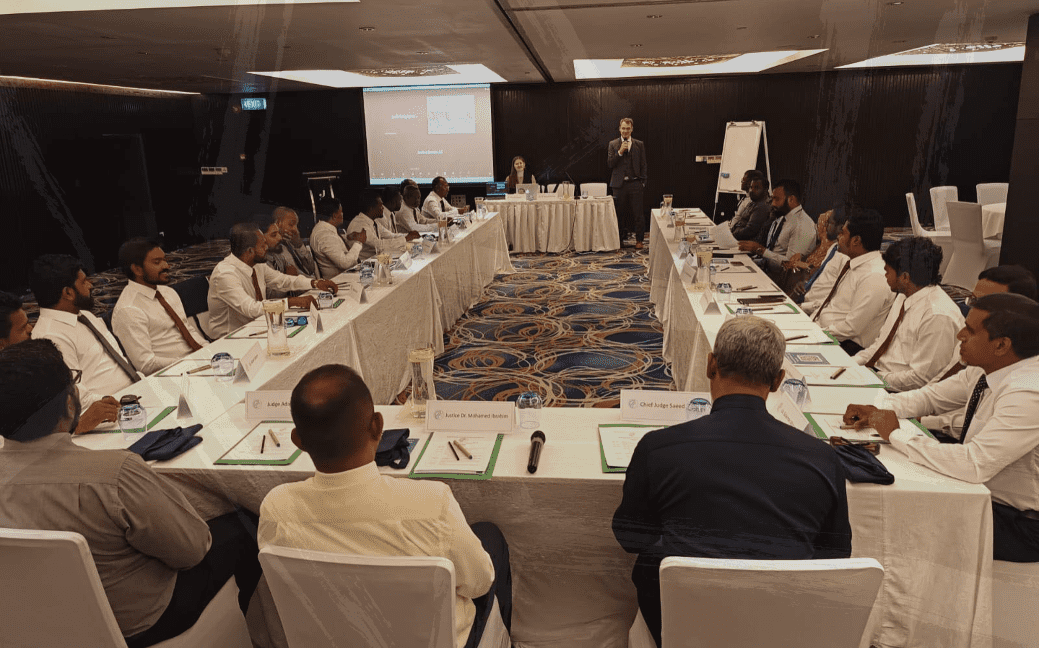Judges from various courts attended the third and final Specialised Dialogue that centred around practical steps to ensure that the principles of child friendly justice prescribed by the Maldives Juvenile Justice Act (No.18/2019) are implemented to full extent in practice.
The Dialogue was organised by the Max Planck Foundation with the support of the Department of Judicial Administration and the Judicial Academy on 19-20 March and was attended by judges from the Juvenile, Drug, Civil, Criminal, Magistrate Courts and from the Supreme Court of the Maldives.
On the first day, Emeritus Professor of Law Savitri Goonesekere held a virtual session on the meaning and interpretation of the best interests of the child in the Maldivian legal framework as well as in other jurisdictions and on methods of integrating the principle of the best interests of the child into the rights afforded to children in conflict with the law. The session was followed by questions from the audience, that raised issues regarding the tardiness of proceedings and how that affects the rights of the defendants. Additionally, the possibility to waive the right to legal representation was explored within the child friendly bounds. Specific cases were discussed with the view of pinpointing the risks of acting under the public pressure and the decisions that the judiciary may feel compelled to take that can contravene the scope and objectives of child friendly justice.
The second day continued with an intervention from Rt Justice Muhammad Imman Ali, former Justice of the Supreme Court of Bangladesh. Justice Imman Ali underlined the crucial role alternatives to judicial proceedings play in a child friendly justice, along with the social, judicial, and economic benefits of diversion mechanisms. Justice Imman Ali highlighted the root causes of juvenile crime, discussed the mens rea of child offenders and exemplified with cases to highlight the lesser culpability of children. The session was followed by an interactive discussion between participating judges and Justice Imman Ali. Different challenges in the implementation of diversion schemes were brought up along with concerns of children being used as tools of crime by adults that engage in criminal behaviour systematically. Subsequently, the benefits of remote proceedings were explored as a possible solution to many concerns relating to child friendly justice (ensuring privacy, legal representation, and social workers’ consultations readily available on atolls, avoiding intimidating court settings etc).
The Dialogue concluded with Justice Dr Mohamed Ibrahim of the Supreme Court of the Maldives giving closing remarks and emphasising the importance of abiding by child friendly principles in Maldivian proceedings.
This Specialised Dialogue was the third and final one in a series of Dialogues for the Judiciary of the Maldives and part of the project Stabilising the Rule of Law by Supporting the Reform Agenda of the Republic of Maldives generously funded by the German Federal Foreign Office.

